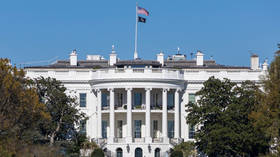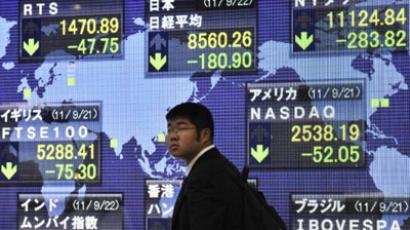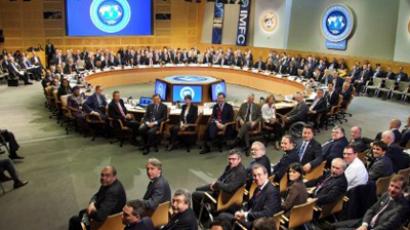‘UK crisis to get significantly worse’
Europe's financial crisis seems to be spreading across the English Channel as the UK becomes the latest country to feel the pinch. Rating's giant Moody's has downgraded 12 of Britain's banks, including the Royal Bank of Scotland and Lloyds TSB.
This comes after the chief of the Bank of England said on Thursday the country's economy is at its lowest since the 1930s, if not ever. Today the Bank of England will spend another 75 billion pounds (US$116 billion) in an attempt to stimulate a struggling British economy.And as British MEP Godfrey Bloom told RT, politicians and central banks’ spending artificially depresses interest rates, creating a credit boom. And that always creates a bust.“Whenever you have a boom you always end up with a bust. And this is going to get significantly worse,” Bloom said.Chancellor of the Exchequer George Osborne says British banks are strong enough, and the government is taking steps to avoid having taxpayers bail them out. But according to Bloom, what he is doing is artificially creating money.“He is inventing money electronically out of absolutely nowhere. It is counterfeiting money actually, it is doomed to failure. Otherwise he should have given money-printing machines to every family in the UK. I have never heard anything so absurd,” he exclaimed.“We have still far too much public spending, the Chancellor of the Exchequer talks about cuts, but of course he has not made any cuts. In the last 12 months the public borrowing requirement for the UK has actually gone up, not down and there are too many people still in the public sector who are creating wealth,” added Bloom.
Mark Littlewood, director general of the UK's Institute of Economic Affairs, told RT the latest ratings downgrade is a grave warning, but nevertheless a welcome one.“What we have to get away from in the UK is the idea that every single bank is copper-bottomed, because if they get into trouble, the tax-payer will bail them out,” Littlewood explained. “One of the key things the UK government is struggling with is how do we allow a bank to fail without actually destroying the wider economy. These downgrades of our banks actually reflect the fact that we are beginning to move away from what was a helpless situation,” he added.The cash injection of £75 billion into the British economy that was announced on Thursday by the Bank of England will not do any good apart from possibly fuel inflation, believes Littlewood.“The inflation in the UK is already around 5 per cent, which, compared to recent years, is high. Putting more money into the economy risks increasing that inflation. And throwing an extra £75 billion into the economy is actually a distraction from what the UK government really needs,” he concluded.















